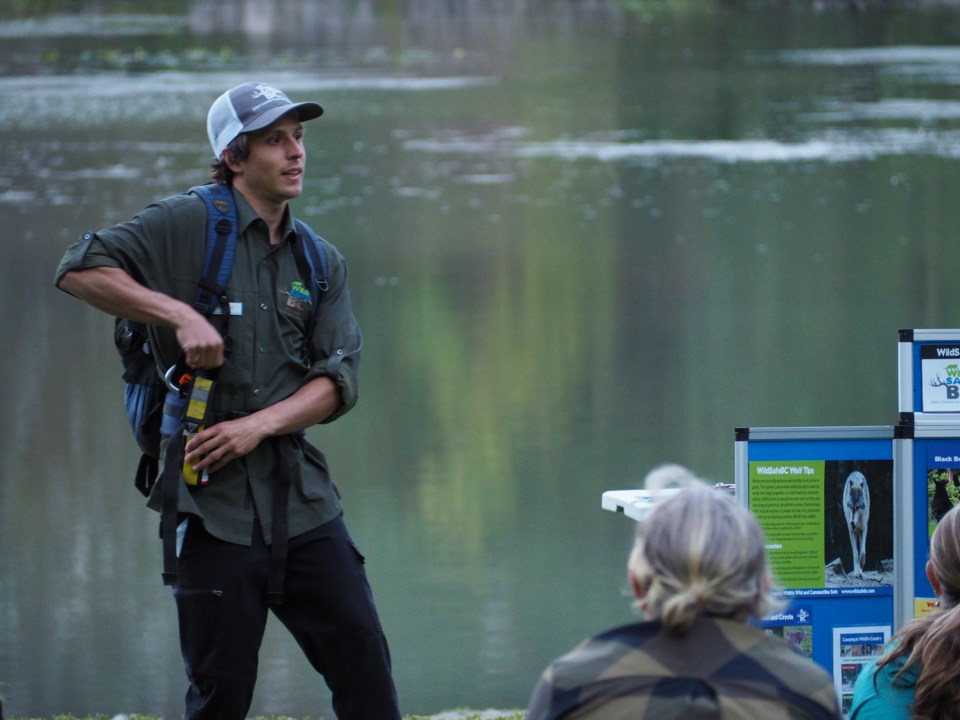Conservation Officer Service (COS) members in the Sea to Sky had their hands full this summer.
Putting aside increased numbers of calls related to lakes and recreation, the COS has responded to between 2,000 and 2,500 bear complaints alone so far this year, said Sgt. Simon Gravel.
“It’s very high. We are the highest in the province, just to give you a bit of perspective … it’s definitely one of the busiest years we’ve seen,” Gravel said.
But despite the high number of calls, just two bears in the Whistler area were destroyed due to human conflict this year, Gravel said.
“It’s always a last resort, and we’re trying a lot of other things,” he said, adding that the COS is working hard to remove attractants from communities.
“We do enforcement, and we do audits, and making sure we can be on the ground providing the right education to people.”
With many of the calls in Whistler this year, the COS was able to have “officers on the ground very quickly,” Gravel said, meaning they were able to use things like short-distance relocation, hazing and attractant management rather than destroying bears.
“So all those factors in place led to some successful stories with bear management, for sure,” he said.
“Fingers crossed. The season is not over.”
Historically, September brings a spike in human-wildlife conflict, said Devin Pawluk, WildSafe BC Coordinator for the Squamish-Lillooet Regional District.
“September is historically a month where human-bear conflicts are at their highest … and that’s really due to the bears entering a phase called hyperphagia, which is an increase in feeding activity driven by a biological need to fatten up in preparation for winter denning,” Pawluk said.
The No. 1 thing people can do to help reduce conflicts is secure their attractants, Pawluk added: things like garbage and solid waste, bird feeders and barbecues, and fruit trees.
Fruit trees have become a major problem in the region, Gravel said.
“It is a big part of the problem. On a daily basis, we have bears in dense residential areas, feeding in people’s backyards,” he said.
“And I know some people don’t care—they say, ‘I don’t mind if a bear is eating my fruit trees’—but it is a problem, and if people think it’s a cool thing, it’s not.
“The situation often escalates very quickly, and unfortunately it [has] led to some situations where we ran out of options.”
A Thursday-evening incident in which a grizzly was captured and relocated in a residential area in Squamish only serves as a reminder to secure attractants, Gravel added.
The SLRD is also hosting two free “BC Goes Wild” information events on Sept. 17 and 19 (in Furry Creek and Britannia Beach, respectively).
“I’ll be sharing information about local wildlife species and how to behave in a wildlife encounter,” Pawluk said, adding that attendees can also learn more about managing attractants and speak with the COS.
Find more info on Facebook: WildSafeBC Squamish Lillooet RD.
Report wildlife conflicts to the COS at 1-877-952-7277.




